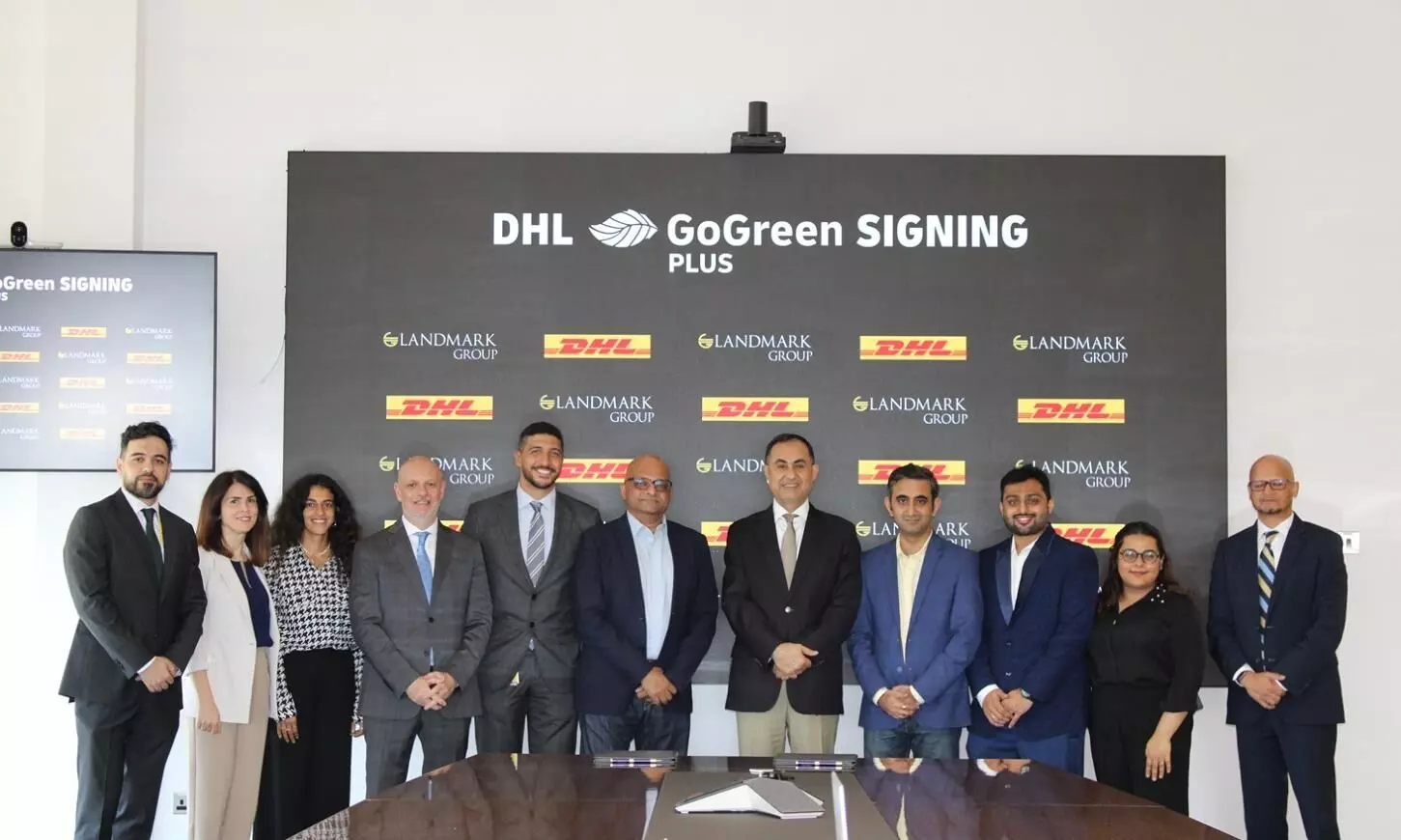
Landmark Group partners with DHL to cut emissions using SAF
The partnership uses DHL’s GoGreen Plus programme to lower Scope 3 emissions and support the UAE’s Net Zero 2050 goals

DHL Express has signed a strategic sustainability agreement with Landmark Group to reduce the retailer’s Scope 3 emissions by using Sustainable Aviation Fuel (SAF) through DHL’s GoGreen Plus programme, marking a major step towards carbon-neutral logistics and supporting the UAE’s Net Zero 2050 target.
The partnership will allow Landmark Group, which operates more than 2,200 retail stores across 21 countries and employs over 50,000 people in the region, to decarbonise its international air freight operations. GoGreen Plus replaces conventional jet fuel with SAF made from renewable feedstocks to cut emissions directly within the supply chain instead of through traditional offsetting.
Each tonne of SAF used can reduce lifecycle emissions by up to 80% compared to fossil fuels. These reductions are independently verified and certified by SGS, ensuring full transparency and accountability.
The agreement was formalised at DHL’s UAE Head Office in Dubai by Mahmoud Haj Hussein, Country Manager of DHL Express UAE, and Rajesh Garg, Group Chief Financial Officer and Chief Sustainability Officer at Landmark Group.
Mahmoud Haj Hussein said DHL is investing €7 billion globally in climate-neutral logistics by 2030 and highlighted that partnerships like this turn those ambitions into measurable results. He added that Landmark Group’s adoption of GoGreen Plus shows how progressive enterprises are driving the industry toward a net-zero future.
Rajesh Garg said Landmark Group is embedding sustainability across its business and called the partnership an important move in reducing Scope 3 emissions through credible solutions such as SAF. He noted that collaboration with forward-thinking partners is essential in the transition to a net-zero future.
The initiative aligns with the UAE’s National Net Zero by 2050 Strategy. By addressing Scope 3 emissions, which are often the largest and hardest for companies to manage, both organisations are contributing to wider climate goals and supporting long-term sustainable development.

